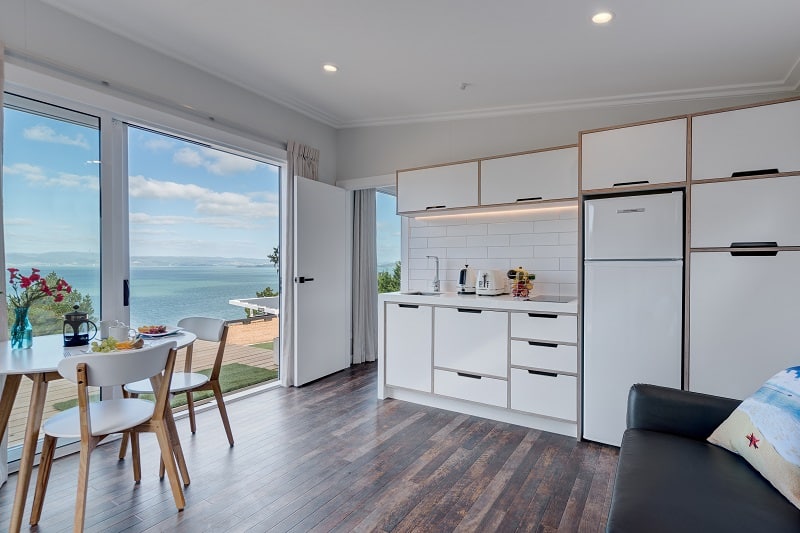
Fashion fad or here to stay?
Since the 1950s, we’ve seen the size of New Zealand homes increasing, while at the same time the household occupancy has been decreasing. But that looks set to change with the growing trend towards smaller houses. Just why are we attracted to these and what’s so appealing about downsizing our homes?
After the US financial crisis in 2007-08, the housing bubble burst. Unemployment and bank foreclosures saw many people lose their large homes and the search for alternative options began.
Blogs, books, and TV shows, about tiny living proliferated making the concept appealing to the masses and spawning a worldwide movement.
“A social movement where people are choosing to downsize the space they live in,” is how the popular American blog site, The Tiny Life – Tiny Houses, Tiny Living describes the tiny house movement.
Economic, social, lifestyle, and environmental factors all come into play in the trend towards smaller houses.
Empty nesters are attracted to the idea of less upkeep and more leisure time. Lifestyle trumps household and maintenance chores! According to NZ government stats, almost two-thirds of New Zealanders felt that repairs or maintenance were needed on their homes (Housing statistics). Also, almost half of the New Zealanders report living in a cold house so having a smaller place that’s easy to heat affordably is an extremely attractive option.
Millennials are attracted to the lower cost enabling them to enter the housing market earlier. Smaller houses are cheaper to build, buy, rent, and run. People across all demographics like the lower maintenance costs and reduced utility bills.
Socially, solo households are growing and the average nuclear family is shrinking. Back in 2010, Australia’s Grattan Institute mentioned in a housing report, The Cities We Need, that the fastest-growing type of household in Australia is single-person households. It’s a similar situation in New Zealand with the fastest growing living arrangements predicted to be ‘a person in one-person household’ and ‘partner in couple-without-children’ (National family and household projections, population by living arrangement type, age, and sex 2013(base)-2038).
In the Netherlands, the government recently made it easier to care for ailing parents by allowing the permit-free building of a smaller house in the backyard if it meets certain conditions. One of them being that the building is not larger than 100 m2.
Smaller houses offer many eco-friendly benefits. Millennials particularly are conscious of the smaller footprint a small abode affords. Here are just a few of the environmental benefits:
- Prefabricated construction means a quicker build and less on-site construction time as well as reducing defects and increasing quality.
- Fewer raw materials, reduced material waste, and energy efficiency increase sustainability.
- A smaller house makes you focus on efficiency: decluttering; owning less; clever storage; smart homes; renewable energy, etc.
In the States, building permits can be a stumbling block to going small. Living Large in our Little House author, Kerri Fivecoat-Campbell, talks in her book about how codes where introduced after the Great Depression and following the World War II boom to prevent ‘tenements’ and ensure safe housing. These codes are still in effect today and specify minimum square footage for new construction. Also, many cities require dwellings to have permanent water connections and flushing toilets. These codes are slow to be updated in keeping with today’s needs and the movement towards smaller houses.
If you have land and want to build a house in New Zealand, whether you need a building consent depends on the dwellings you already have on site. A kitchen and/or ensuite means you will need a consent, but if it’s a room only, a backyard office for example, then no consent is necessary.
Is downsizing or getting a foot on the property ladder something you’ve been dreaming about?
At Eco Pod Concepts, we take a personal approach in helping you to make sustainable and affordable choices. We can also advise about the building consent process. In addition to building amazing homes, we also build great friendships. Give us a call today to see how we can help bring your dream to life.
